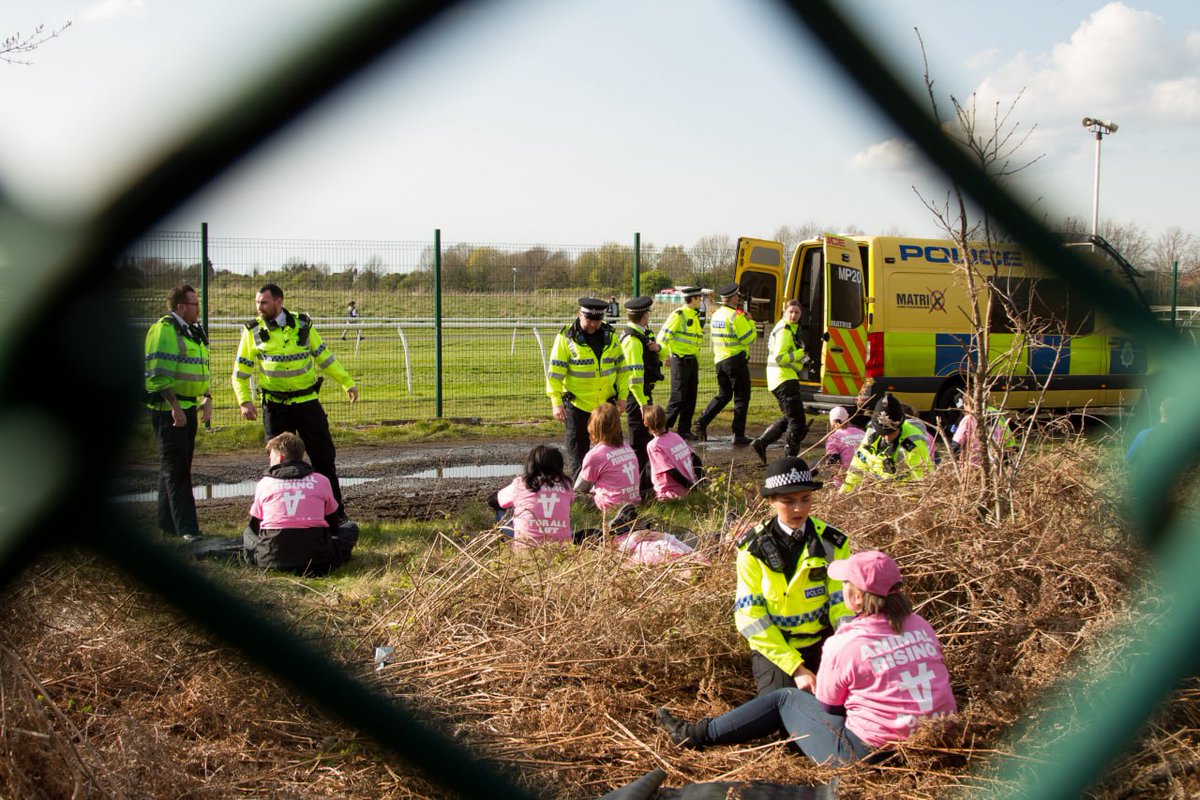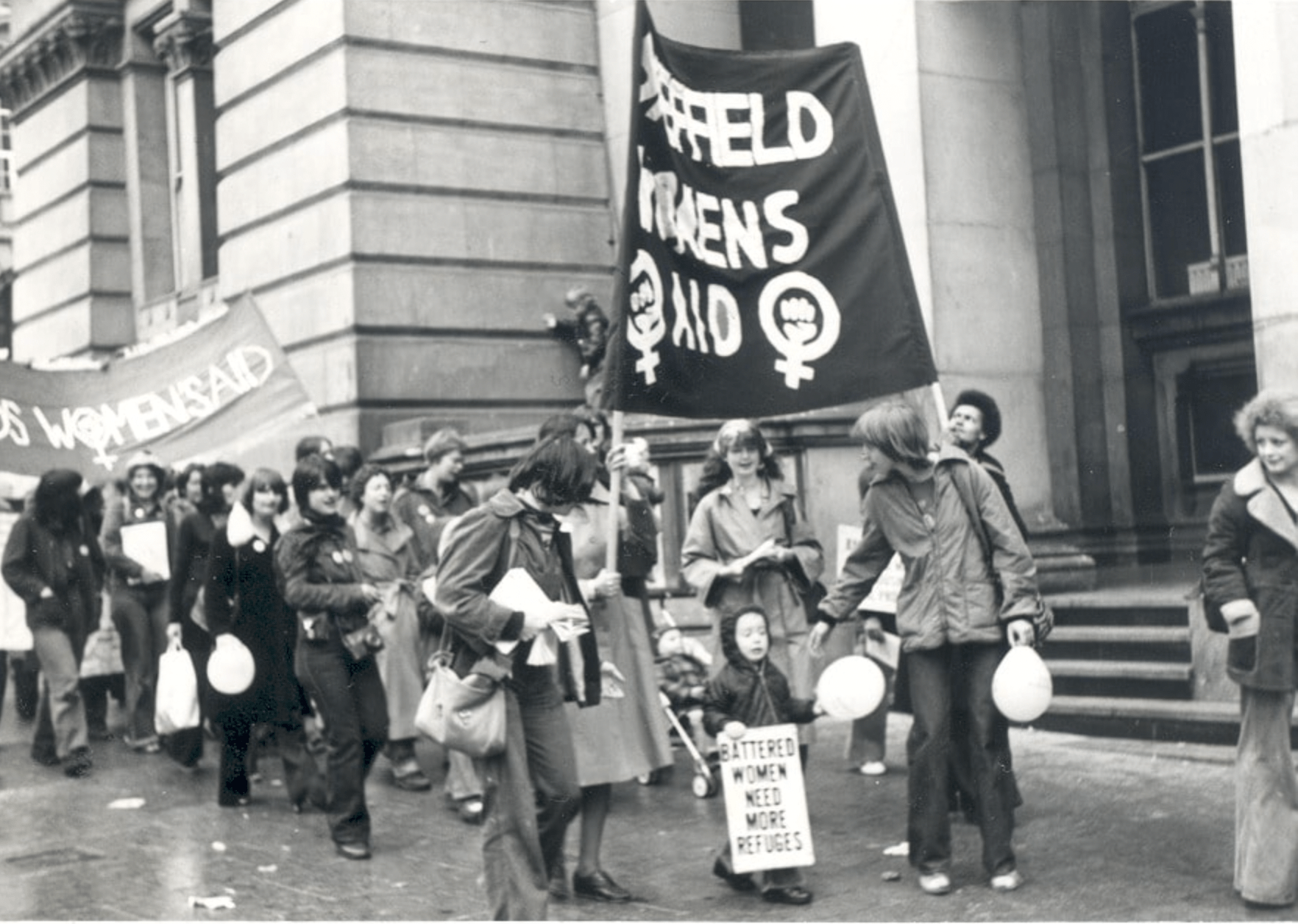The fallout from Aintree is still causing ripples in the horse racing world after three horses died and 118 protestors were arrested.
Since the controversial event there has been continual heated debates around the safety and wellbeing of horses.
The activists are calling for horse racing to be abolished but supporters of the sport claim it’s protestors who are increasing the risk of the the animals being harmed.
Horse trainer Sandy Thomson blamed Animal Rising activists for the death of his horse, Hill Sixteen, after they invaded the track causing the race to be delayed for 14 minutes.
Speaking to the BBC, he said: “The delay to the race definitely contributed hugely to what happened at the first two fences.”
“It was all caused by these so-called animal lovers who are actually ignorant and have absolutely no idea about the welfare of horses.”
Hill Sixteen died from injuries after falling at the first fence of the race, having never fallen before in his career.
The protests at Aintree are the latest in a string of forceful action the country has witnessed in recent months.
Last week paint powder was thrown on snooker tables at The Crucible, and this week demonstrators in London have protested against the government’s environmental policy.
Mr Thomson said: “We are getting fed up in this country and somebody’s got to start doing something about these people. Most people are going about their lawful business and you get [protestors] lying on roads and things. We’ve got to take a much firmer stance.”
Although the level of disruption seen at Aintree feels more intense that what has been witnessed in the past, concerns over racing and the welfare of horses has long been a focal point for groups such as Animal Aid.
Dene Stansall, a horse welfare consultant at the action group is a well known critic of racing and the detrimental impact it has on the animals.
He believes Sandy Thomson’s comments clearly demonstrate a horse’s welfare does not come first in the decision making process of those involved in the sport.
He said: “From my point of view, if the racecourse thought there was any problem with horse welfare issues, then they should have stopped the race and run it on the Monday as they’ve done in the past.
“Clearly the racing industry and the trainer at the time decided that despite what was going on, they would still run their horses. The reason being likely because there’s half a million pounds to be won for the winning horse, and the glory and celebrations that come with it.”
“He was prepared to risk his horse for that.”
Horse racing is worth over £4 billion to the UK economy and Mr Stansall said the sport is intrinsically tied to the gambling industry and would not enjoy the popularity it does without this link.
Nevin Truesdale, Chief Executive at the Jockey Club, told Racing TV he believes Aintree has brought the conversation around horse racing back into the public domain and allows the industry to think about what can be improved within the industry.
He said: “What we should be doing is engaging with the more rational organisations like World Horse Welfare and the RSPCA, all of whom can see the changes we’ve made and who continue, rightly, to put us under pressure to make more changes.”
Mr Stansall believes the problem is far more deep rooted. Animal Aid started a petition for horse racing to have an independent body for the protection of racehorses in 2018, which was debated in parliament after receiving over 100,000 signatures.
As a result the Horse Welfare Board was established, but he feels although it is independently chaired, it is still an industry body and they haven’t gone far enough to implement changes.
The horse racing consultant believes the lack of progress has left Animal Aid no option but to call for an outright ban on horse racing.
He said: “The industry promised deaths would come down. That’s four and a half years ago, and we’re still seeing as many horses die now as what we did prior to that. So [they’re] very slow in making any changes, if at all. That’s why we’re campaigning for a ban.
“It’s a big thing to say ban something, but it starts the debate.”
Animal Aid have compiled their own data on fatalities in horse racing as they believe the industry does not release transparent figures to the public. It has been only since 2021 that the British Horseracing Authority have included and recorded deaths of horses for the 48 hours after the event and attributed them as a racing death.
Mr Stansall also pointed out the 0.2% fatality rate of horses in races, actually includes every run completed by a horse.
For instance, if 10 horses completed 10 runs and there was one fatality, this would be recorded as a 1 in 100 fatality rate rather than 1 in 10.
Animal Aid have recorded 2599 deaths of horses since 2007, with the highest being 221 fatalities in 2022. This works out to around four dead horses a week.
Defenders of the industry argue race horses receive an extremely high-quality level of care and the regulation designed around safety and welfare is robust. They also highlight the lack of alternatives proposed by those who want a ban on what to do with the thousands of specifically bred thoroughbred horses that will be left redundant.
Those inside the industry itself stress there is an ongoing consensus in the sport to improve standards.
Racehorse trainer, Richard Phillips, came up with the annual National Racehorse Week in 2021, with the goal of celebrating the thoroughbred and opening up the industry to the public.
Speaking to the Guardian, Mr Phillips said: “Racing needs to open its doors, and let the general public decide whether they think it is a moral sport.”




